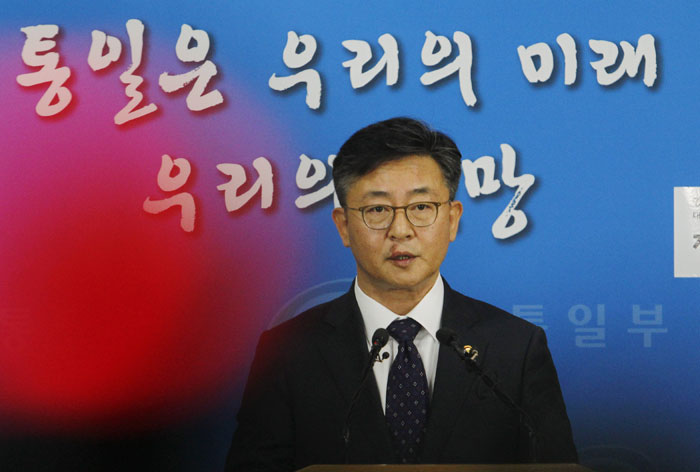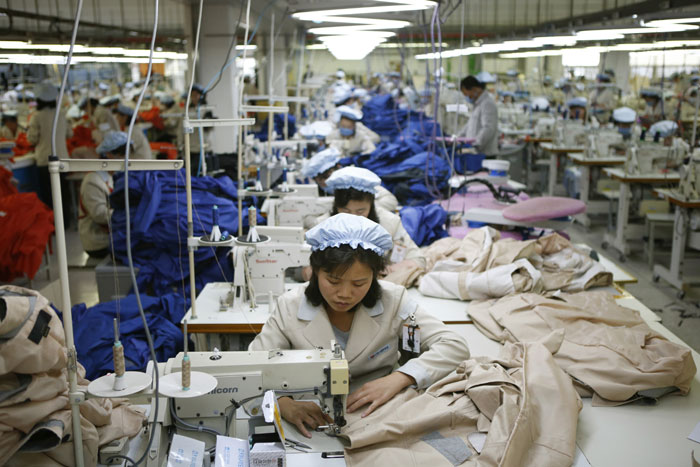
Unification Minister Hong Yong-Pyo speaks during a press conference at the government building in Seoul on Feb. 10 that South Korea said it will suspend its participation in a jointly run industrial park on the border with North Korea, in response to Pyongyang's nuclear test and rocket launch.
South Korea on Thursday began pulling its nationals out of an inter-Korean industrial complex in the North as Seoul moves to close the factory zone over Pyongyang's provocations.
South Korea has decided to shut down the Kaesong Industrial Complex in the North's border city of the same name, the last remaining symbol of inter-Korean reconciliation, in response to the North's latest nuclear test and long-range rocket launch.
The government said its priority is being placed on ensuring that its people can safely return home where a total of 124 South Korean firms are operating.

South Korea said on Dec. 10 that it will halt operations at joint industrial park with North Korea in response to the North's recent rocket launch. North Korean workers assemble jackets at a factory of a South Korean-owned company at the jointly-run Kaesong Industrial Complex.
"As North Korea has given its consent to Seoul's plan to remove its people from there, South Koreans staying there are able to smoothly enter and exit the complex," a Unification Ministry official said.
Seoul's move, its strongest non-military measure, is aimed at cutting off the North's source of hard currency as the international community is pushing for stronger sanctions against North Korea's nuclear test on Jan. 6 and a long-range rocket launch earlier this week.
The two Koreas' quasi-state committees on running the complex are expected to hold talks over the suspension of the factory zone, including the movement of equipment.
"We plan to retrieve South Korean companies' equipment and finished products, but there should be discussions over this with North Korea," a ministry official said.
Unification Minister Hong Yong-Pyo said Wednesday that Seoul's move is aimed at preventing South Korean money from being funneled into the North's nuke and missile developments.
The South Korean firms annually provide about US$100 million in total to North Korean workers for wages. Since its inception in 2004, around $560 million in total has been offered to North Korean workers at the factory zone, including $120 million last year, according to the ministry.
The complex has served as a major revenue source for the cash-strapped North, while South Korea has benefited from cheap but skilled North Korean labor.
Article, photos by Yonhap News